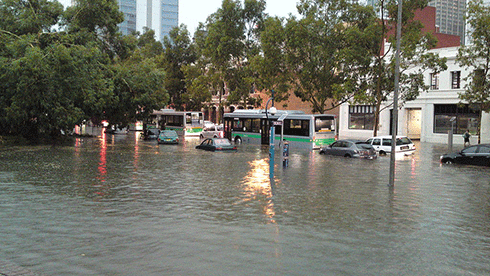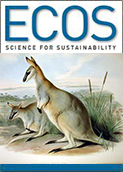
|
Published: 3 June 2014
Do current models underestimate true cost of climate change?
Climate models need to be updated to include the true economic and social costs of climate change, according to a recent article published in Nature. Otherwise, future generations will have to pay more for today's carbon emissions than is currently believed.

|
|
Climate change impacts may cost us more than we currently estimate Credit: Michael Spencer CC BY-NC-ND
|
The article’s authors – led by Thomas Sterner, professor of Environmental Economics at the University of Gothenburg and a Coordinating Lead Author of on the Working Group III, Fifth Assessment Report of the Intergovernmental Panel on Climate Change – say climate models used by policymakers around the world to estimate the economic and social costs of CO2 emissions have to be improved.
‘Our purpose with this article is to discuss models that will enable us to calculate a necessary minimum level for the global environmental damage of emitting an additional ton of carbon dioxide,’ says Sterner.
‘This cost is relevant given the attempts of the [US] to raise the so-called social cost of carbon in the US$37 dollars per ton. All US authorities, such as the Departments of Energy or Transport, must [now] take this cost into account in calculations of investments in roads and energy supply.’
The authors point out that the social cost of carbon corresponds to the money saved when damages due to climate change are avoided as a result policies and actions that lead to reduced CO2 emissions.
‘Sweden has already gone further than what the US is discussing, since we have a CO2 tax of about US$150 per ton, or SEK 1 per kilo, of CO2 emissions from transports and energy,’ says Sterner.
In the Nature article, the authors point to several weaknesses of the most commonly used climate models. However, they point out that the models are useful, since they enable politicians to reduce the effects of climate change to some extent.
The authors call for modellers, economists and natural scientists to cooperate more in identifying research gaps and weaknesses, so that models can be continuously improved.
Source: University of Gothenberg



